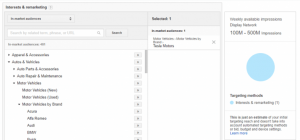— September 1, 2017

Horwin / Pixabay
When evaluating job offers, marketing executives obviously ask themselves whether this is a good job to have. Shrewd candidates even ask whether they are confident that they can do the job very well.
I’m presenting a third concept to evaluate before accepting a job offer: Is it a good job to get fired from? This also should be a key consideration before accepting a job since almost everyone reading this blog can expect two or more (usually many more) jobs in their future.
Good Job or Risky Job or Both?
The two principal questions to ask about the job you’re considering.
- Is it a good launching pad to find an even better job?
- Will taking this job make it more difficult to obtain future jobs?
- Think very carefully about taking a job that could hinder you finding a subsequent job.
It may be smart to take a risky job if it provides benefits that will help you find an even better next position.
1. Jump to a higher level.
- Achieve a promotion in title, responsibility, and income.
2. Develop a valuable skill.
- Learn something that will help your career.
3. Utilize a valuable talent.
- Use a talent you already have but are not able to use in your current job with your current employer.
- This is especially important if you believe this talent can become the focus of your career.
4. Enter a growing category.
- Gain knowledge and experience in a category that you believe offers a better future than your current one.
5. Join a more prestigious company.
- The cliché that you’re known by the company you keep also applies to the companies you have worked for. Many job openings require prior employment at specific respected companies to even be considered.
6. Work with more prestigious clients or customers.
- Gain contacts and experience supplying and servicing important companies.
7. Relocate to your desired location.
- Go home … or to another preferred location. Almost regardless of the job’s desirability, taking the best available job in your highly desired location could be a great move for you (and your family).
8 . Learn from great boss/clients/customers.
- There’s a lot to be learned from people. This is an especially motivating rational if the people you currently work with aren’t able to (or even don’t care to) advance your skills and career.
I’m glad I took my most risky job that only lasted twenty-one months. This job delivered the first two career benefits from the above list, and my next job lasted five plus years with a much stronger company and even better compensation.
If the job you’re considering has any of these traits that are important to you, you should think seriously about accepting an offer as long as you also answer yes to all three of these earlier questions:
- It’s a good job to have;
- You can do this job very well; and
- It’s a good launching pad for finding your next job.
Googling found many articles about how getting fired can be good for you, but none that takes this point of view of using the likelihood of getting fired to be part of your career planning.
Since the subject relates to getting fired, I also wanted to provide a link to one of my recent blogs to help you find your next job.
Business & Finance Articles on Business 2 Community
(61)
Report Post








